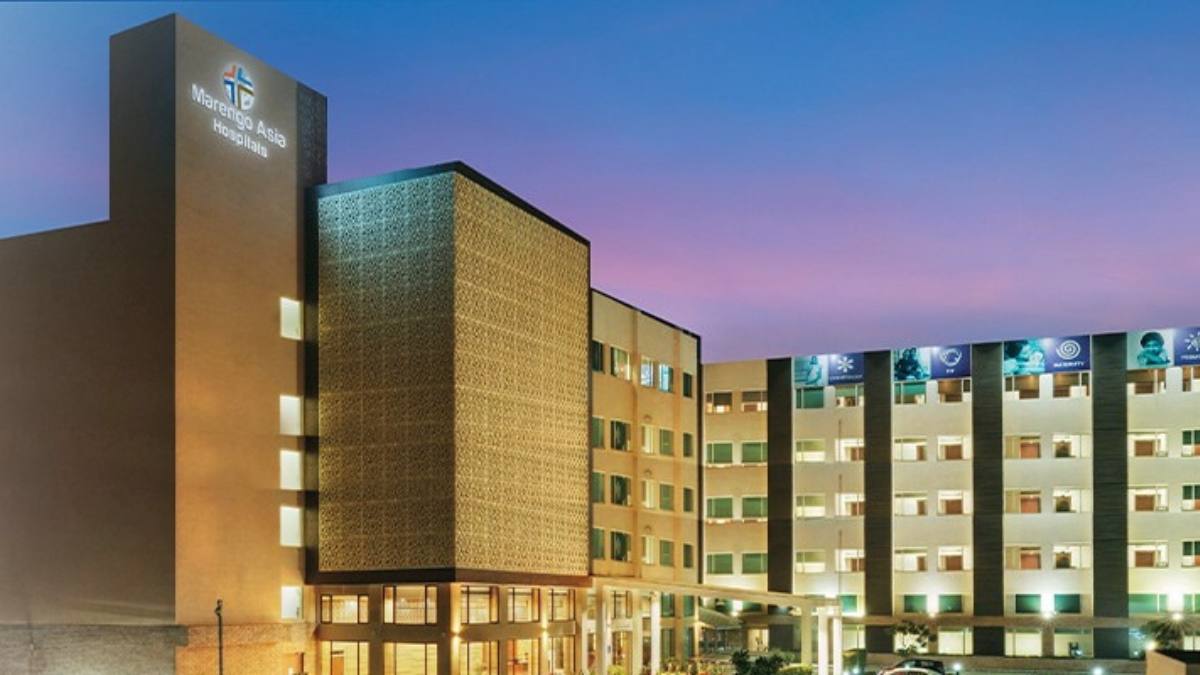WFY Bureau, New Delhi: In a remarkable milestone for mental health treatment in India, Marengo Asia Hospital in Gurugram, Haryana, has successfully conducted the nation’s first deep brain stimulation surgery (DBS) to address schizophrenia. This groundbreaking surgical technique involves the implantation of electrodes in specific brain areas to regulate abnormal brain activity. Schizophrenia, a severe mental health disorder characterised by distorted reality perception, hallucinations, delusions, and disorganised behaviour, has found a ray of hope with DBS, a type of psychosurgery falling under the umbrella of neurosurgery. Although DBS is commonly employed for movement disorders like Parkinson’s disease, only 14 documented cases worldwide have witnessed its application in schizophrenia patients.
India has achieved a significant milestone in psychosurgery with the successful completion of its first ever deep brain stimulation (DBS) surgery for schizophrenia. The groundbreaking procedure was performed on a patient from Kenya at Gurugram’s Marengo Asia Hospital in Haryana.
Dr. Himanshu Champaneri, a senior consultant neurosurgeon at Marengo Asia, revealed that the 28-year-old patient experienced substantial improvement, witnessing a reduction of 50–60 percent in symptoms and an impressive 80 percent decrease in hallucinations, delusions, and anxiety. DBS effectively modulates abnormal brain networks, offering the potential for further enhancement over time. The distinctive advantage of DBS lies in its personalised treatment approach, which targets specific brain regions. In the case of schizophrenia, the focus rests on the nucleus accumbens, which is responsible for symptoms such as hallucinations and delusions. The patient, burdened with schizophrenia for 15 years and enduring a severely compromised quality of life, qualified for DBS surgery as a “treatment-resistant schizophrenia” case.
The Haryana State Mental Health Authority granted the necessary approval for this psychosurgical intervention in accordance with the provisions outlined in the Mental Healthcare Act of 2017. India shoulders a significant mental health burden, with the World Health Organisation estimating 2,443 disability-adjusted life years (DALYs) per 100,000 population and an age-adjusted suicide rate of 21.1 per 100,000 population. The economic impact of mental health conditions in India between 2012 and 2030 is projected to amount to a staggering $1.03 trillion.
Raising awareness about schizophrenia assumes utmost importance given its debilitating nature, accompanied by social isolation and stigma. Despite affecting 6-7 percent of the Indian population, mental disorders continue to be poorly understood, even among the educated strata. The pioneering DBS surgery conducted at Marengo Asia Hospital for schizophrenia signifies a significant leap forward in India’s mental health treatment landscape, offering renewed hope to those afflicted by this challenging condition.
What is Schizophrenia?
Schizophrenia is a complex and severe mental health disorder that affects millions of people worldwide. It is characterised by a combination of symptoms that can significantly impact an individual’s thoughts, emotions, and behaviour. People with schizophrenia often experience distorted perceptions of reality, including hallucinations and delusions. These hallucinations can involve hearing voices or seeing things that are not there, while delusions involve holding false beliefs despite evidence to the contrary. Other common symptoms include disorganised speech and thinking, social withdrawal, and a lack of emotional expression.
The exact cause of schizophrenia is still unknown, but it is believed to result from a combination of genetic, environmental, and neurological factors. The disorder typically emerges in late adolescence or early adulthood and can have a profound impact on a person’s daily functioning and quality of life.
Treatment for schizophrenia often involves a combination of medication, psychotherapy, and psychosocial support. Antipsychotic medications are commonly prescribed to help manage symptoms, while therapy sessions can assist individuals in understanding and coping with their experiences. Supportive services such as vocational training, housing assistance, and community integration programmes are also crucial in helping individuals with schizophrenia lead fulfilling lives.
It is important to raise awareness and promote understanding about schizophrenia in order to reduce stigma and ensure that individuals with the disorder receive the support and treatment they need. By fostering empathy, providing education, and advocating for accessible mental health services, we can create a more inclusive society for those living with schizophrenia.
